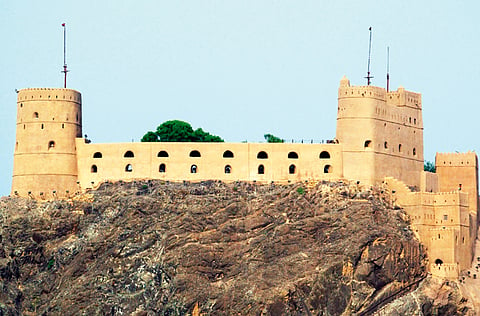No salary cuts in Oman’s 2017 Budget
Oman plans to levy taxes on the rich, but not middle and low income individuals

Muscat: Oman’s 2017 budget will not include any cut in wages and salaries as well as the basic services provided to citizens, Saleh Musin, the head of Economic Committee of Shura Council said.
Musin explained that the Shura Council discussed with the Minister Responsible for Financial Affairs, Darwish Al Beloushi, in a closed session on Monday the 2017 general budget, the economic challenges that Oman faces, spending controls and the budget deficit.
The meeting also focused on the volume of oil and non-oil revenues, rates of economic growth, financial position of the government and its monetary policy, the size of the savings versus investment rates, rates of oil production and prices expected during the next year.
He added that the 2017 budget would be similar to the 2016 budget, with the projected average price of a barrel of oil being at $45. The 2016 general budget focuses heavily on austerity measures, starting from ministers’ cars to the ministries lights.
The 2016 budget projects 3.3 billion Omani rials (Dh31.47 billion) in deficit spending for 2016, which, it says, it will try to reduce by improving the non-oil revenues as well as cutting expenditures. Oman posted a budget deficit of 4.5 billion rials in 2015, as revenues declined by more than 50 per cent.
“To increase non-oil revenues, Oman will increase taxes on individuals but the Economic Committee affirmed that levying taxes should apply on rich people, not middle and low income individuals,” Musin told Atheer news site.
He pointed out that the situation is not good for Gulf countries depending on oil. “The region is entering an economic recession due to plunging oil prices,” Musin said.
The Shura Council referred the 2017 budget plans to the State Council on Monday for review. The State Council will send its report to the Council of Ministers with its recommendations, along with that of the Shura.
Oman has been cutting state subsidies and introducing other austerity measures to curb a budget deficit of 4.02b riyals in the first seven months of 2016, up from a deficit of 2.39b riyals the previous year. The Ministry of Finance has issued 20 circulars so far this year aimed at controlling and managing spending.



![Oman’s Maritime Security Centre confirmed four crew members injured. [Illustrative image. ]](http://media.assettype.com/gulfnews%2F2026-03-01%2Fv5np7wj5%2FOil-tanker.jpg?w=320&auto=format%2Ccompress&fit=max)